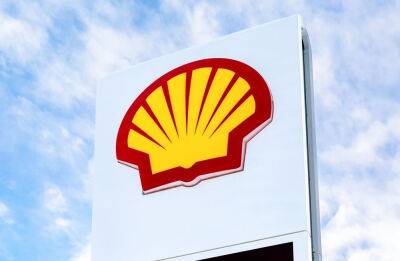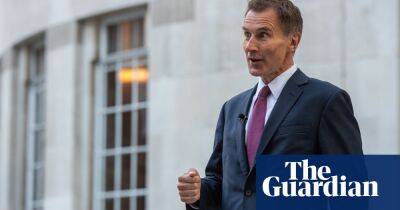Another U-turn looms – but what do they all mean for chancellor’s finances?
Liz Truss is on the verge of reversing one of last major pillars of her chancellor’s disastrous September mini-budget.
While Kwasi Kwarteng mingles with finance ministers at the International Monetary Fund gathering in Washington DC, discussions are taking place in London that would see the promise to freeze corporation tax rates binned. There is also speculation about dropping smaller measures including a more generous tax treatment of share dividends. These U-turns would come hard on the heels of the humiliating climbdown on Kwarteng’s promise to scrap the 45p top rate of tax.
Whether those reversals will be enough to calm the market turmoil that followed the mini-budget remains to be seen.
Here we ask what dropping these measures might save, and what else might be jettisoned or delayed from Kwarteng’s £43bn spending package.
Kwarteng’s predecessor Rishi Sunak said last year he would reward corporations for making big investments with hefty tax breaks from April 2023, but the price for the move was a rise in corporation tax from 19% to 25%.
Kwarteng said he would reverse the tax rise and the investment relief, adding an annual £19bn to his costs by 2026, the final year of the forecast.
In April this year, each band of the tax rates applying to dividend income was increased by 1.25% to match the additional 1.25% increase in national insurance contributions.
Kwarteng said in the mini-budget that from 6 April 2023 these increases would be reversed, with dividend tax rates reverting to 7.5%, 32.5% and 38.1%.
He said the move was due to benefit 2.6 million dividend taxpayers, and especially “entrepreneurs and investors across the UK to drive economic growth”.
The cumulative cost was slated to be £2.3bn over the next four years,
Read more on theguardian.com

 theguardian.com
theguardian.com














